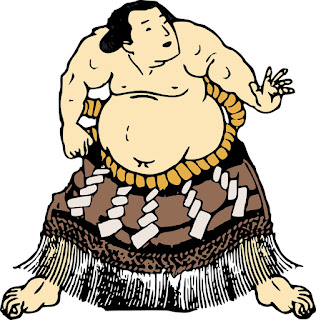In the sport of sumo, stepping out of the ring during a match, known as "dohyō-iri," has specific rules and consequences that are fundamental to the sport's tradition and regulations. The dohyō is the elevated clay ring where sumo matches take place, and stepping out of it can have significant implications for the outcome of the bout.
Rules:
Tachi-ai: The match begins with the tachi-ai, where the two wrestlers engage each other at the center of the dohyō. The aim is to push, thrust, or throw the opponent out of the ring or force any part of their body, except the soles of their feet, to touch the ground.
Forced Exit:
A wrestler is declared the winner if they successfully force their opponent to step out of the ring or touch the ground with any part of their body other than the soles of their feet.
Self-Exit: If a wrestler steps out of the ring voluntarily, the opponent is declared the winner.
Consequences:
Match Loss: Stepping out of the ring results in an immediate loss for the wrestler who does so. The opponent is declared the winner, and the match ends.
Shusshin-kun: Stepping out of the ring is considered a breach of etiquette and discipline. As a result, the wrestler who exits the ring is required to perform the "shusshin-kun" ritual. This involves kneeling and bowing to the ringside judges and the referee to express remorse for their actions.
Rank Implications: In the professional sumo ranks, the outcomes of matches play a crucial role in a wrestler's ranking. Frequent losses due to stepping out of the ring can lead to demotion to a lower division, impacting the wrestler's status, earnings, and opportunities for advancement.
Impact on Winning Record: A wrestler's performance is tracked through their winning record over a tournament. Consistent losses, especially due to stepping out, can affect their overall performance and standing within the sumo hierarchy.
In conclusion, stepping out of the sumo ring during a match has clear rules and consequences. It results in an immediate loss for the wrestler committing the action, impacts their rank and overall record, and requires a display of remorse through the shusshin-kun ritual. These regulations contribute to the integrity and tradition of sumo while emphasizing discipline, respect, and competitiveness in the sport.
Photo: Pixabay (free)

No comments:
Post a Comment
Thanks for your comment.